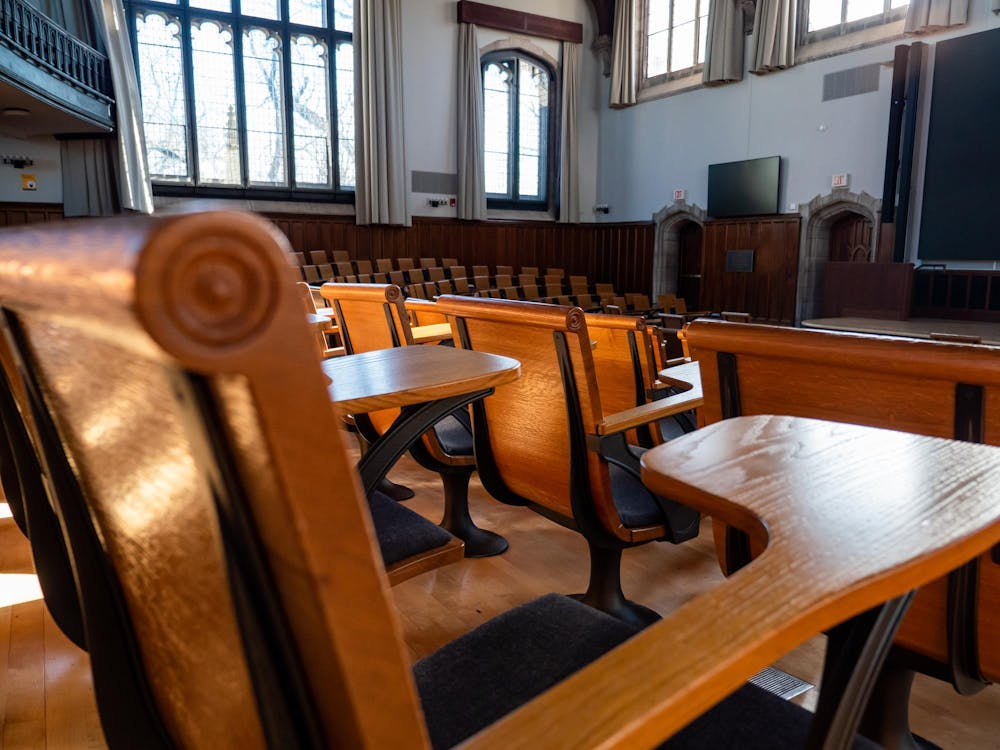Because a student's educational experience extends beyond the classroom, the University is obligated to pay careful attention to non-academic aspects of student life if it hopes to retain its claim of being a truly educational institution.
Because we've all recently come of voting age, our college years can be seen as the formative period of our political activity. Outside of the classroom, does the University provide us with life experience in exerting our democratic will? Are we challenged to evaluate University policies? Are our efforts to reform those policies welcomed by the University's administration as democratic expressions of critical reasoning?
Nope.
Instead, our attempts to participate in the development of University policy are more likely to receive a pat on the head and a "don't let the door to Nassau Hall hit you on your way out."
The sweatshop issue exemplifies this bureaucratic resistance. Last year, in response to mounting student concern, the U-Council unanimously adopted a rigorous code of conduct for the production of University apparel. This proposal declared student participation to be a fundamental part of the decision-making process. Sensing that the administration was about to completely ignore this exercise of our democratic will, over 300 students rallied in protest. The administration made a few important concessions but persisted in alienating students from direct influence over the final form of University policy. When it became apparent that the Fair Labor Association was simply a paper tiger that legitimized the corporate misconduct that started this whole mess, over 800 students signed petitions declaring the FLA to be insufficient. Has there been any change? Is the administration now any more accountable to the will of the student body than it was before this exhausting process of dissent?
Nope.
Is the University producing a cadre of politically active citizens with real life experience in fulfilling the civic duties of democratic citizenship? Or are we being socialized into accepting being governed by an unresponsive bureaucracy? Do Princeton students go on to be important contributors to the political growth of their future communities or do they merrily go about their way leaving community decision-making to more interested folk? It'd be worth looking into, don't you think?







